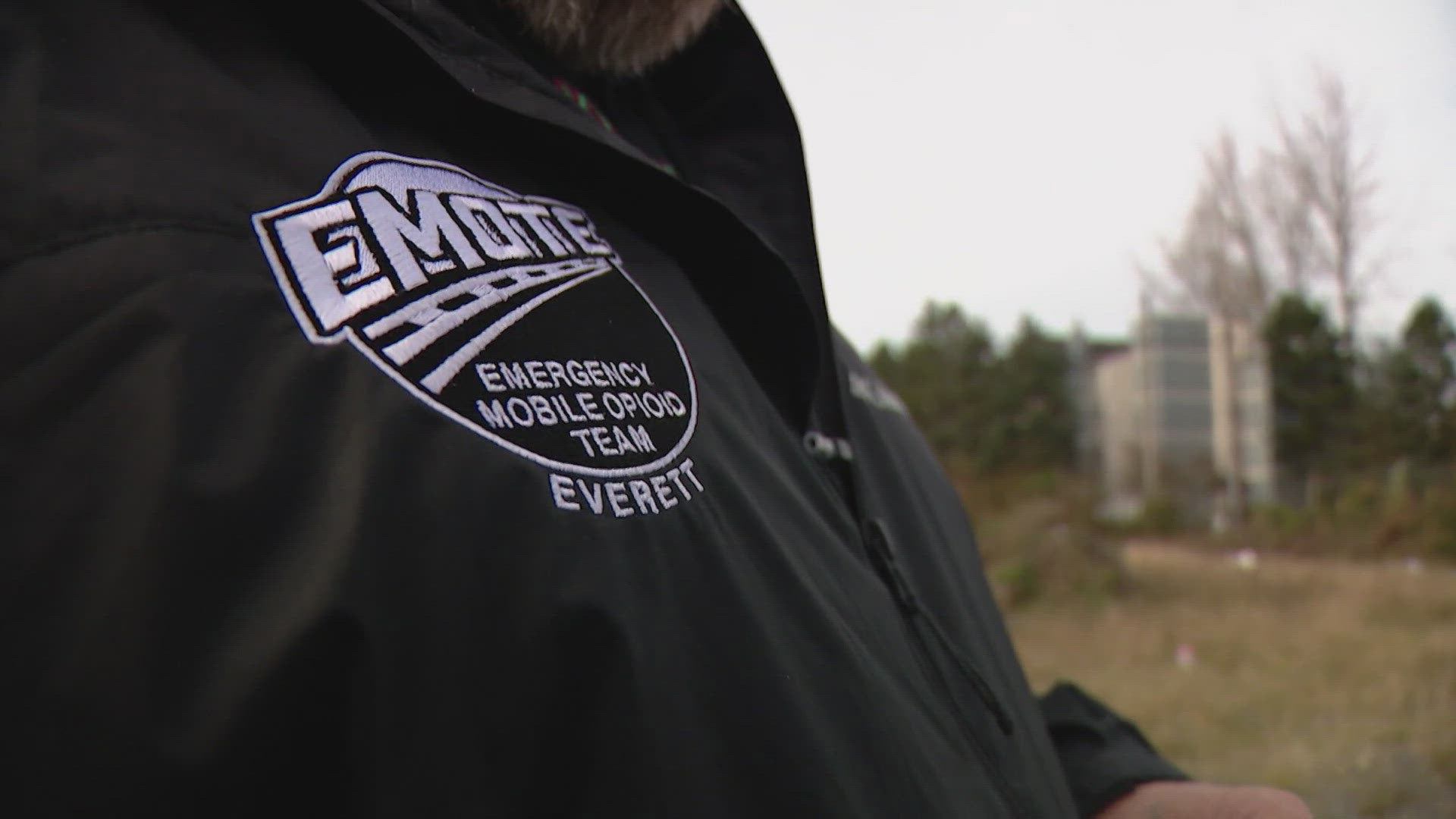EVERETT, Wash. — The problems of mental illness, addiction and homelessness in Washington are forcing cities to look at new approaches to combat them.
In Everett, the city is now deploying people with specialized skills to get people off the streets, but they are not skills one learns in school.
What's different about Everett's program is that it sends former addicts onto the streets to tell their stories so others can change theirs.
Christine Halverson knows the homeless camps of Everett all too well.
She was living in them as a hopeless 13-year-old.
"I grew up in that life," Halverson said, now nearly three years sober.
Halverson is trying to rescue people from the camps and their lives of addiction, desperation and death.
Halverson and her partner, Joe, a former addict who has done prison time, are on the road to bring others to recovery.
They're members of the city-sanctioned Emergency Mobile Operations Team of Everett (EMOTE).
They're practicing what's called "street medicine."
The program brings direct care to people on the street who would otherwise get it from a costly ER visit, or maybe not get it at all.
Many people experiencing homelessness are reluctant to seek treatment in hospitals.
Along with connecting people to detox, counseling and housing, EMOTE provides minor medical procedures, as well as telehealth access to doctors and prescriptions.
Patients are people like Jacob who has struggled with addiction for two decades.
Jacob got a prescription for Suboxone to help get through opioid withdrawals.
That convinced him to commit.
"They are saving my life," Jacob said. "It works. I strongly support what they're doing."
Jacob is eight days clean and headed to a 90-day treatment facility.
"I'm very grateful," Jacob said. "I only go up from here."
Since July, the program has made approximately 200 contacts and provided service to about 150 of them.
Of those people, 50 were referred to detox or rehab and half of them enrolled.
That's a 12.5% success rate, but supporters of the young program said success can't be defined by statistics.
They believe every person contacted is a small success because it helps break down barriers to getting them healthy.
"Options like this also help decrease the impacts on the rest of our public safety system, lessening the burden on our first responders and saving taxpayer money," said Cassie Franklin, Everett mayor.
The City of Everett received $500,000 in funding from the state operating budget appropriations, passed through by the Association of Washington Cities and the Health Care Authority to fund and cover the operational expenses for the EMOTE program for 18 months.
Providence Regional Medical Center Emergency Department Thomas Robey directs the program.
Robey believes the peer-to-peer model is breaking down "barriers of judgment and taboo" that go along with substance use homelessness.
"There's no hierarchy there," Robey said. "There's just two people in community coming together to try to solve a problem. That's what I think the future of street medicine is."
It's a future carried by people like Halverson, whose days in the camps are no longer hopeless.
"I am still one of them, I just found a way out of it," Halverson said. "If an addict like myself can get clean and stay clean and find hope and freedom, absolutely any addict can."

